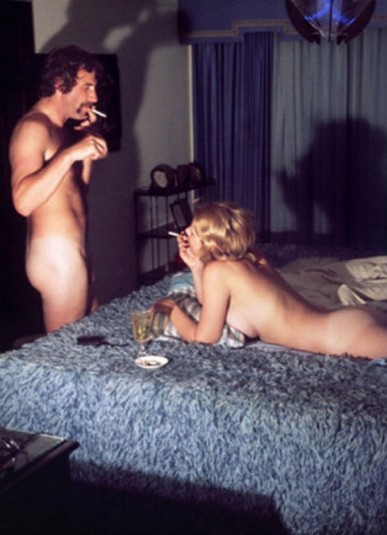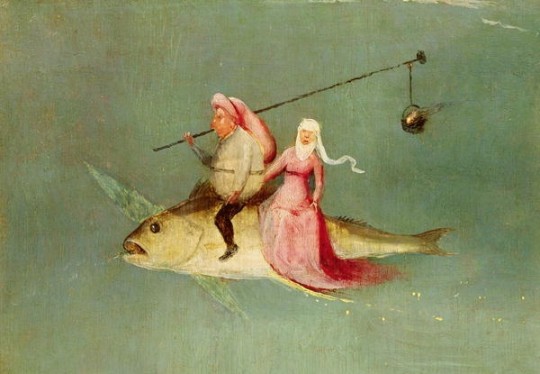
Marcuse wrote in 1942, in an essay titled “The New German Mentality”:
“We may distinguish between two layers of the new mentality: 1) The Pragmatic Layer …matter of factness, the philosophy of efficiency and success, of mechanization and rationalization. 2) The Mythological Layer…paganism, racism, social naturalism.”
Marcuse saw what he called a new “cynical matter of factness”. A cynicicm that integrated the political in everything, but only a very narrow definition of the political. Business had become political…and vice versa. The new “brutal pragmatist” saw in terms of quantities, not qualities. Now, coupled to this was a neo-paganism. Marcuse saw in National Socialism a merging of Christian humanism with the Rights of Man, socialism and democracy—insofar as they were all made of the same base compound. Its good to remember that this project was partly an attack at dissolving German metaphysics.
Today, this cynicism and dogmatic attachment to a cult of corporatized junk science falls under the aegis of “managerial expertise”. It is monetized jargon and thinking, as well as militarized. The non-specialist, though, is complient with any institutional authority (any institution IS authority) and debates from within guidlines that appeal to efficiency, practicality (real or the appearance of) and most importantly, the complience is anchored in an artifical reality created by mass media. This reality is actual authority, and the model for what is defined as practical and efficient. It is, needless to say, highly irrational. In this meta reality the highest irrationality is dissent. Or, resistence to authority.
What is different in today’s cultural landscape, though, is that the (what Marcuse called) *supra language* that had embedded within the desires and subjective impulses of the population is not technical (well, it IS, partly) but media based. The language of TV, the values and explanations and foibles even, are televisional (sic).

The values, and ideas presented in media product are facsimiles, the actual content, the feeling and metaphysics are destroyed. They have been made into screen images for use in the pragmatic goals of the state. In most cases, for use in some form of control. People now argue from the starting point of television and film. The form of artworks or philosophy have been stripped of their history, and of their linkage to material existence, so that a population arguing an ethical or political question do so without real belief that it matters if this has any actual meaning in their daily life. Daily life is another realm, and one where the mediation of laws and regulations are accepted tacitly, and if dissent or questions arise, they are put aside for later discussions in the TV realm. The sense of irony (and snark) serves a useful purpose here, for it feeds the sense of legitimacy for a posture of cynicism. If history is just the same thing repeated over and over with new decor and style (like seasonal fashions), then there is no reason to grant any special meaning to something “happening” today. Even on the left, discourse is shaped by consumer thinking. People want to “own” their positions. These created subject positions are treated as commodities. The result is near constant micro battles over brand loyalities. Changing brands of thought is a huge life disruptive act. And again, snark and cynicism are linked. I was accused last week of “race romanticism” because I said the poor (not races, see, but such confusions are another sign of this detached logic) cant do *snark*. Well, they cant. For snark becomes, as its uttered, something else when you have no stake in the pagentry. Cynicism of the sort manufactured today serves to de-historicize. Been there done that. Its a lifestyle choice. And short forms such as twitter serve to enforce manufactured ersatz identities. The claim was made that no social group or race has a patent on sarcasm. Right, disconnect, and erase history.
As with National Socialism, the universals (race, blood, etc) lack universality. Today these are even more abstract (freedom, democracy, liberty etc) and used in even more particular (non universal) ways. So that, for example, “freedom” is something almost religious, an idea so elevated that not understanding its actual meaning is to be expected. And its *natural*. Arabs and muslims are terrorists. Americans love freedom. Black teenagers in hoodies are criminals. The backdrop today is the ready made myth of American Exceptionalism (Manifest Destiny). Imperialist conquest is part of the natural order of things (part of *progress*).
Marcuse points that the population has to believe they are being rewarded for acceptance of these universals and the attendant hierachy. The reward today for the US is “security”. That the population is profoundly insecure hardly matters, for on the TV screen they ARE secure. There is a constant presentation of social equilibrium in popular narrative. It is disrupted…by minority youth, or outsiders with accents and strange customs, or by *bad apples* on occasion. But fear not, the authority structure will hunt them down, kill them or jail them, and equilibrium will be restored.
Homeland Security suggests a mythic foundational state. Its abstract, but it’s emotionally weighted. In media narratives sacrifice is only good if its shores up one of these universal truisms. Family, country, flag, freedom. So deep is the indoctrination that if one suggests that in fact people are being routinely arrested for “saying” things — the argument flies in the face of this reality. “If this werent a free country you couldn’t say that”. But you mostly CANT say that. If you are in any way an effective voice of dissent, you will be arrested. Whistle blowers are traitors.

I think one of the interesting secondary characteristics in play for the U.S. population is an anti European bias. Its coupled to an anti intellectualism (which I have stressed before). Americans have always distrusted European society, at least superficially. One of the popular memes of the last decade has been to refer to the 20th century as The American Century. We rescued Europe, who were weak and appeasers. The actual history of both world wars is of little importance in this narrative. When Oliver Stone’s excellent history series came out the corporate media could not heap enough abuse, or villify Stone sufficiently. Today, the former Indiana governor (now President of Purdue University) wants to ban the works of Howard Zinn. The average US citizen likes to think of themselves as hardy individualists. As frontiersmen. And indeed in some respects this bears a grain of truth. A settler nation has evolved a familiarity with at least the images and jargon of settler and homesteading life, if not rancher and romanticized factory worker. The narrative however narrows this down to very specific operational tropes. And cutting across all of this abridged history is an increasingly virulent militarism. George Zimmerman as scalp hunter and Indian killer. Progress demands casualities. Only the weak worry about such things. Only the weak “cant take it”.
Today there is in the U.S. (as there was in National Socialism) a volkish elevation of physical strength. Or at least the screen appearance of it. The rise in cosmetic surgery for both men and women aids in the appearence of beauty — but it is of course, often not healthy at all. This warrior body for men fits nicely with abstractions about heroism and security. For women, the stigmatizing of age is linked to a fear of the female when it is not young, not a “girl”. Brand innocence is highly valued, and then sold in marketing and porn. Alongside this presentation and shaping of beauty, comes the insistence on a model of competition. Competition breeds excellence. The young are presented with a model that focuses attention on the race and not on the extra-competitive context or history or formation of that race. The contest results in a winner. The young are told, if you want to win the race, you must devote 100% of your time to preparing for the competition. This creates a habit of thought that removes what are seen as distractions. Meaning curiosity and study of causes are kicked aside….one doesn’t want to be a loser. The sacrifice of preparation for the contest is praised. Transcendental ideas do not help us become winners.

This week Obama spoke of the Trayvon Martin case. That is all he did. Speak. I read commentators (black and white) who praised this *restoring of blackness*. or “addressing of racism”. He did no such thing. He made a short vacuous speech. Nothing more. The obvious opportunism of this speech, coupled to all the things he didn’t say, is stunningly obvious. But, such is the worship of authority.

Here is a long quote from an article by Bruce Levine, PhD:
“In my career as a psychologist, I have talked with hundreds of people previously diagnosed by other professionals with oppositional defiant disorder, attention deficit hyperactive disorder, anxiety disorder and other psychiatric illnesses, and I am struck by (1) how many of those diagnosed are essentially anti-authoritarians, and (2) how those professionals who have diagnosed them are not.
Anti-authoritarians question whether an authority is a legitimate one before taking that authority seriously. Evaluating the legitimacy of authorities includes assessing whether or not authorities actually know what they are talking about, are honest, and care about those people who are respecting their authority. And when anti-authoritarians assess an authority to be illegitimate, they challenge and resist that authority—sometimes aggressively and sometimes passive-aggressively, sometimes wisely and sometimes not.
Some activists lament how few anti-authoritarians there appear to be in the United States. One reason could be that many natural anti-authoritarians are now psychopathologized and medicated before they achieve political consciousness of society’s most oppressive authorities.
Why Mental Health Professionals Diagnose Anti-Authoritarians with Mental Illness
Gaining acceptance into graduate school or medical school and achieving a PhD or MD and becoming a psychologist or psychiatrist means jumping through many hoops, all of which require much behavioral and attentional compliance to authorities, even to those authorities that one lacks respect for. The selection and socialization of mental health professionals tends to breed out many anti-authoritarians. Having steered the higher-education terrain for a decade of my life, I know that degrees and credentials are primarily badges of compliance. Those with extended schooling have lived for many years in a world where one routinely conforms to the demands of authorities. Thus for many MDs and PhDs, people different from them who reject this attentional and behavioral compliance appear to be from another world—a diagnosable one.
I have found that most psychologists, psychiatrists, and other mental health professionals are not only extraordinarily compliant with authorities but also unaware of the magnitude of their obedience. And it also has become clear to me that the anti-authoritarianism of their patients creates enormous anxiety for these professionals, and their anxiety fuels diagnoses and treatments.
In graduate school, I discovered that all it took to be labeled as having “issues with authority” was to not kiss up to a director of clinical training whose personality was a combination of Donald Trump, Newt Gingrich, and Howard Cosell. When I was told by some faculty that I had “issues with authority,” I had mixed feelings about being so labeled. On the one hand, I found it quite amusing, because among the working-class kids whom I had grown up with, I was considered relatively compliant with authorities. After all, I had done my homework, studied, and received good grades. However, while my new “issues with authority” label made me grin because I was now being seen as a “bad boy,” it also very much concerned me about just what kind of a profession that I had entered. Specifically, if somebody such as myself was being labeled with “issues with authority,” what were they calling the kids I grew up with who paid attention to many things that they cared about but didn’t care enough about school to comply there? Well, the answer soon became clear.
Mental Illness Diagnoses for Anti-Authoritarians
A 2009 Psychiatric Times article titled “ADHD & ODD: Confronting the Challenges of Disruptive Behavior” reports that “disruptive disorders,” which include attention deficit hyperactivity disorder (ADHD) and opposition defiant disorder (ODD), are the most common mental health problem of children and teenagers. ADHD is defined by poor attention and distractibility, poor self-control and impulsivity, and hyperactivity. ODD is defined as a “a pattern of negativistic, hostile, and defiant behavior without the more serious violations of the basic rights of others that are seen in conduct disorder”; and ODD symptoms include “often actively defies or refuses to comply with adult requests or rules” and “often argues with adults.”
Psychologist Russell Barkley, one of mainstream mental health’s leading authorities on ADHD, says that those afflicted with ADHD have deficits in what he calls “rule-governed behavior,” as they are less responsive to rules of established authorities and less sensitive to positive or negative consequences. ODD young people, according to mainstream mental health authorities, also have these so-called deficits in rule-governed behavior, and so it is extremely common for young people to have a “duel diagnosis” of AHDH and ODD.”

Today the government doesnt have to sell, it’s been bought anyway. The giant PR apparatus of the U.S. government only promotes ideology. They market fear and sell security. But they don’t have to really sell it, it’s a belief.
In a sense this is what is different from National Socialism. The state is now geared toward control of the populace and the protection of the ruling class and its wealth and holdings. The volkish aspect of today’s state apparatus is more geared to obedience. The destruction of the fictional enemy is best left to experts. The new private security, as well as the new (as Radley Balko puts it…) warrior cop (and volunteer soldier) are the technicians of domination. The irrational paganism of these fetishized figures is in constant interplay with the new private sector managerial class. These realms are kept separate. The marketing of managers as heroic is on one side, and the worship and erotizing of the warrior on the other.
As Marcuse noted (speaking of the Reich) …“racial restriction, the confinement and supervision of leisure, the abolition of privacy, and the request for purity dilute and regulate the permitted pleasure”.
The “system”, capitalism, is the new pater familias, and has usurped morality. But it is now a system viewed on screens. The U.S. population has been increasingly inclined to simply make do with what is permitted. Enough is allowed, especially in the form of gadgets and toys to create an illusion of individual agency. The new cynicism is an encouraged subject position for it merges comfortably with this model of nature. Of existence. The desire for passion and energetic release are seen as willfull anarchy and as ODD .. and probably in need of medication. In a culture of monetized risk aversion principles, eroticism must be reduced to not just narrow genital satisfaction, but often just a bare allowence of titillation. It is masturbatory. Sexual exploration, which cannot really be completely regulated and controlled, is illicit and done anonymously. There is the introduction of new mechanisms of guilt in play, probably worthy of a whole post onto themselves. The public form debates around acceptable non-issues. Red state, blue state, gay marriage, and even genuine issues of reproductive rights are discussed in the language of state vetted vocabularies and templates of reform. Who and how can anyone believe that a government that drone attacks children and rescue workers is going to give a shit about details of health care? If something is won back, it will be taken away by other means even faster.

Resistence is compromised by a clear strategy employed by state propaganda that encourages the buying of “specialness” of any particular group, even distinctly oppressed ones. Solidarity becomes impossible when it becomes a battle of commodified ideas. The special grammar and language of the barrio or ghetto, born of resistance, is co-opted into marketing campaigns. Jay Z is never evaluated as a corporate lackey. A black or Latino face is, in a ridgidly controlled public arena, used to pacify (sports, entertainment, etc). In other areas (Chavez for example) it is a stigmatized *other*. The face of those not fit to really lead. The constant shifting contextual arenas broke little cognitive dissonance. The reconciliation of contradictory narratives seems to occur seamlessly.
This is where the dismantling of philosophy comes into play. The vague mushy incoherence of a Zizek for example allows for endless critical texts that say almost nothing. Embedded within all this verbosity, however, are indulgences granted by the state for racism and class contempt. My own shock at the reaction to the Zimmerman verdict was to see how openly the new white supremacism has entered public discourse as an acceptable subject position. The notion of “natural” plays an ever more crucial role in state propaganda. All resentment, all destruction, all conquest, and especially all inequality are laid out as “natural”. It simply is unrealistic to think it can be otherwise. White fear (for the white population is the key demographic for state created fear) is given allowence. White surpemacism is expressed as *fair* or *balanced* and *moderate*.
Inequality is as natural as capitalism.
Ernest Krieck (Nazi philosopher) is quoted by Marcuse, from an article written in 1933:
“…So called culture has become completely inessential and never represents a higher value”.
The reality is that there are huge anti-Capitalist feelings in the U.S. Why do they have so little traction? A good part of the answer lies in this distrust of intellect and more, of culture and art. Aesthetic re-education therefore seems of highest importance. The reliance on a world view shaped by kitsch corporate (and Pentagon) products of entertainment, and of opinion shaped by the same corporate media, has established itself in a hegemonic discoursive position, and enclosed all thought and language. There is a strange contradiction here in which people can both see that network TV shows are *only* entertainment (*its only a movie, or its only a TV show) while at the same using these entertainments as a source of authority for debate and analysis. But it is rarely actually debate and certainly more rarely analysis. It is in fact so transitory (new shows every season as old ones are cancelled) that new models are constantly be evoked in discussions, and therefore it is more, again, the ownership of ‘your favorite show’ that matters more than what the show says. Fan culture is now political culture.

The propaganda of militarism has normalized mass violence and individual violence. The ongoing normalizing effect of propaganda coupled to the trust of science and technology has bred a numbness and sense of resignation. Those anti capitalist feelings run smack into the idea of futility. It is futile to fight what is simply natural. It is futile to really question various technical priest class experts.
There is of course great distinctions in the public realm. All of these tendencies of thought vary greatly in quality throughout various groupings, by class, race, and culture. Still, almost everyone is affected to some degree. It is worth writing an entire post, probably, about just how these distinctions operate and for what reasons. The overriding impetus of the white populace though, especially perhaps the liberal side, is to seek out balance where really none exists. The US criminal justice system, and its police enforcers and its overwhelmingly white system of judges and lawyers participates and extracts a systematic beastial violence on the poor, and especially on black and brown. To say “not all cops are bad” is actually to prop up and defend this system. To look for a phantom complexity in Zimmerman’s stalking and murder of an unarmed teenage boy is to defend an ethos directly traced back to slavery and genocide. An entire vast history of killing is erased by looking for exceptions when such exceptions are utterly trivial.

Erik Prince, founder of Blackwater Security
The same dynamic exists in popular culture. If there is a war of Imperialist conquest or of genocide, there will likely be a kistch response that sets a love story against this violent backdrop. Pick any conflict and I am sure Hollywood has a love story set within this landscape. Thus the grammar of tenderness and affection and desire is used within a narrative illustrating military violence and death. The loss of life is reduced to the loss of love. Images of tenderness juxtaposed with images of war, but within the same form, with familitary in actors, lighting, sound, etc means the message is intertwined and even suggestive that love is the greater for taking place on a site of mass carnage. The fact is, that the sentimental kitsch love story IS a form of aesthetic violence, in a sense. That so many young screenwriters reflexively lurch toward such hacknyed plot ideas is largely the result of a dismantled education system (and probably this:http://www.slate.com/articles/arts/culturebox/2013/07/hollywood_and_blake_snyder_s_screenwriting_book_save_the_cat.html). This is only an extension, really, of the enobling value of war (as some fascists have it). This is the Paulist idea of scratching the surface of history to find human beings all the same underneath (family of man, etc). The reality is that you scratch the surface of humans and find history. War and violence become useful romantic backdrops, and the Romeo and Juliet theme, or the doomed nurse, are cliches that really point the viewer to the more acute sensations of violence. That somehow the terror of fascist death squads can be expressed in the same style codes and images and rhythms as human love, means that love is actually only an intermission for the greater activity of service to the state. The sensitivity of the human is negated. The industrial violence of rapacious state violence is made noble and transcendent if the war is only a neutral prop. The visual and textual grammer is, in the end in such instances, overtaken and made violent itself.
This also underscores the disappearance of avant garde opposition. The stark anti war and anti conformist posture of radical artistic voices was the primary target for corporate and institutional cleansing. The avant garde stance was well aware in almost all its incarnations, that form eclipsed content. Aesthetic quality is close to totally separated from message. Refusal that matters is the refusal of kistch form.

So, two things in all this: one is the new cynic. The second is aesthetic re-education. The cynic is linked to instrumental thought. As is resignation. When life is left to technical expertise, when daily existence is cleared of any results of one’s own labor, there is a hollowness that follows. Cynicism is defeat. And simultaneously, the snark, the rhetoric of white (primarely, and almost always affluent to some degree) irony is now just a form of condensced aggression. It is an assault on the aesthetic. The underlcass adjusts, it is constantly creating codes of resistance, but they are almsot as quickly neutralized. A culture of intellectual scavanging is presenting itself as ironic cool. If you cannot see corporatism in Jay Z as easily as you see it in Justin Bieber, then something is wrong. Obama has mophed into an Orwellian screen head…his mouth moving but the sound comes from inside DARPA or the NSA. Who knows. When the most outraged I’ve seen anyone get in public is to complain about smoking in a no smoking area, while their nation carries out global industrial scale violence by the biggest military machine ever in history, then the mediated life is all but meaningless. Genuine aesthetic resistance is a resistance to manufactured fear.
A last couple remarks on National Socialism and the American Empire. It was Carl Schmitt who served as the theoretician of Nazi legal justifications. Schmitt saw that Universal law was inconvenient for the ruling class and its state organs. As Marcuse again, noted, circa 1942, “the National Socialist Regime has done away with these properties of the law (Universality) which had raised it above the hazards of the social struggle. The very concept of the law as universally valid and equally applicable has been abandoned and replaced by by a diversity of particular rights, one for the party, one for the army, and a third for the ordinary Volksgenossen.”

I want to add a coda here, from Yasha Levine, not at all unrelated. I grew up in El Lay, and I know first hand the LAPD. Parker set the imprint, and you can read a great history of Los Angeles police in Mike Davis City of Quartz. Parker was evangelical about creating a cadre of immaculate Christian white men to keep the city safe. In a moment of NSA revelations, it’s good to remember the impetus for what is now technically possible was alive even back in the 1950s. (a footnote is that Gene Rodenberry based Dr.Spock in Star Trek on Bill Parker, for his emotionless dead demenour).

Young William Parker
“Parker was also a hardcore fan of the John Birch Society and a supporter of an evangelical fascist organization led by Dr. Fred Schwartz called the “Christian Anti-Communist Crusade.” And the Birchers and Southern California fascists loved Parker right back. He made the cover of the Birchers’ official magazine. He was also a frequent guest on the Manion Forum, a weekly radio show hosted by high ranking Bircher Clarence Manion. With 2,000 LAPD officers being card-carrying members of the John Birch Society, the organization was essentially a de facto extension of the L.A.’s Red Squad. Birchers were fed files on subversives, participated in vigilante attacks on supposed commie spies…you know, the Birchers got in on the fun stuff that even the wife and kids could take part in.
In 1965 the Watts riots erupted, lasting nearly a week, in response to segregation, repression and police brutality directed against the city’s large African-American community. In his testimony to a commission investigating the riots, Parker blamed the whole thing on a crafty commie plot to subvert America: “black leaders seemed to think that if Parker [he’s referring to himself in the third-person —YL] can be destroyed officially, they will have no trouble in imposing their will upon the police of America … because nobody else would dare stand up.”
Parker left the force in 1968, the same year that Robert F. Kennedy was assassinated in the kitchen of L.A.’s Ambassador Hotel. The assassination was surrounded by strange circumstances and suspicious behavior from the LAPD. Among other things, they got rid of key evidence in the case—including sections of a ceiling and a door frame that had been removed—that supposedly show there more than one gun had been fired that night.
As for the political surveillance, well, it only accelerated. The Intel Bureau was reorganized into PDID. By the end of the 1970s, LAPD was inundated with lawsuits related to its covert police activities. The scandals just kept rolling in, and getting more and more shocking. It was clear that the Red Squad was alive and well, and that surveillance of leftist civic groups continued unabated.
Here are just a few of the revelations:
In the late 1970s, a leaked LAPD target list showed that PDID had flagged 200 organizations for surveillance. Nine out of ten of them were peaceful social and political organizations, including churches. The list also contained a bunch of crossed out entries, rightwing organizations that were not to be surveilled. Among them was the John Birch Society. No surprise there.
The Birchers got a pass, but PDID spied on the Los Angeles City Council, stalked white supporters of the Civil Rights movement, tried to frame peaceful groups with semtex and other explosives, and installed an undercover LAPD detective as Jane Fonda’s “radical” security guard to monitor her anti-war activities. “Jon Dial, to all appearances a left-wing leader who provided security for Jane Fonda at political rallies, turned out to be an undercover cop. In 1977 Dial married his roommate, another “activist” named Connie Milazzo, who had been arrested at a Progressive Labor party demonstration. Milazzo wound up admitting in court that she too was an undercover police officer,” reported People magazine in 1979.
Apparently, PDID also spied on an outfit that was trying to get Soviet Jews like myself out of the USSR. “This was an anti-Kremlin movement, but the intricacies of that obviously were too much for the PDID,” remarked the LA Times.”
Yasha Levine


More from the Levine article, which seems appropriate to the post here:
“While giant pharmaceutical corporations promote psychiatry’s authority as a vehicle for increased drug sales, the whole of the corporate state supports psychiatry so as to maintain the status quo. In the old Soviet Union, political dissidents were diagnosed by psychiatrists as mentally ill, then hospitalized and drugged. Even more effective for those at the top of the hierarchy is what now occurs in the United States: diagnosing and treating anti-authoritarians before they have reached political consciousness and before they have created communities of resistance.”
thank you george. Yes, should have included that.
” The fact is, that the sentimental kitsch love story IS a form of aesthetic violence, in a sense”
I wonder how many viewers will understand The Act of Killing in a context of nothing except The Year of Living Dangerously.
Anyway,n again, lots to sya, but I am wondering did you ever read History of Bourgeois Perception (Lowe)? With some reservations (foucault and historic/epistemic “breaks”) its veyr interesting – Merleau Ponty and Marx. Anyway he talks about the hierarchization of the senses accomplished by media techologies and structures. The Spectacle as Debord pondered it is dominantly visual and the domination of the visual is key. But here we have, Lowe suggested, a move from this dominantly visual bourgeois culture, – cartography, photography – to a fusion, an audio visual spectacle intensely stimulated and intense aural. Yet music does retain some capacity now for popular dissident expression (though it has been the region least able to absorb its avant garde into mainstream), if any part of mass culture does.
http://www.youtube.com/watch?v=oWBf9hfW_4Y
Anyway I’d want o tack back to what we were talking about abotu the language architecture in theatre, the space created by language, as opposed to the flattened illusion of space given us by visual recording technologies, in relation to this surveillance project. Because I can’t believe part of this listening has not to do with intervening in language – our language, moire effectively, to alter the space we make with our communications. We see the ideological black ops on the left on the attack, really trying to mine our language, make it unweildly and dangerous, make us move slowly through it and have to stop frequently when something explodes. The visual did its work in a kind of war on narrative as you have discussed here so thoroughly; but now the direct attackj, asssted by that visual wedge, the diabling of language, the transformation of language into a substitute for visual montage, words for pictures, targets language with this kind of pseudo language whose illusion of validity comes from the links to visual paradigms. But anyway, the Lowe makes me think about the intensity of the effects of the visual anti-sense when it is delivered wrapped in something as sensual as music, as physically and emotionally stimulating.
Oh yeah – this all brought to mind by the way these media played out in the courtrooms – the rodney king video transformed into these context free fragments, each blow replaced by a kind of archetypal context of the supernaturally dangerous black zombie; the phone call with Rachel Jaenel and how it was attacked at the very base level of linguistic effectivity, the visual “dramatization….
to insist on basic historical sense and capacity to judge plausibility with this evidence is defiant disorder.
@molly: Well, synchronistically I am writing ( in a dialogue with zimmerman) now exactly these topics. Or part of it is. I think absolutely that “language as a substitute for visual montage”…..YES,… fuck yes, exactly so. And i was doing all this reading last year on ancient Egyptian writing….the eveolution of symbols, glyphs, etc. Its fascinating really because of how there were different tracks at work — and some glyphs were almost visual montage languages. They did cartoons, too, essentially. And they had alphabets eventually. Im not an expert, and there isnt much good stuff, philosophically, written on the subject. One sort of Derridean who isnt bad,. But….this leads to heidegger on the pre socratics. That was marcuse’s opinion by the way, that Heidegger was the most brilliant analyst of ancient texts. That was his actual genius. Anyway……..so yes, yes, I think this is something really significant……we are circling around something……for all the po mo postures about visual literacy etc…..misses the point completely. Its that this new visuality is changed. I am writing more on this. Up next blog post. But I was thinking about that scrrenwriting book. FORMULA. How does that conditioning work? The eye is being trained not to see. Im just not sure all the ins and outs of it.
There is a lot here. I printed it and so I can comment now. I completely agree that the Regimes of Power are different, although not entirely so, betwixt the Third Reich and Contemporary US imperialistic hyper-commodification/digital capitalism. The kernels of national romanticism – evident in Russia, the US, and Germany (which is now dismantling the Left in Europe, again) – are very evident. Your analysis of Homeland Security reminds me of this type of ‘enrootedness’ that led Heidegger to the bloody lands of the provincial peasant cum Nazi…
The US does have a strong anti-intellectualism. In fact, in certain parts of the country it is seen as part of one’s identity to be stupid. This is also coming out of Regimes of Mental Health discourse, “Crazy Like Us” is a book I highly recommend that documents the US’s quasi-imperialist marketing and brand pushing of drugs in areas with drastically different ways of dealing with mental illnesses, or with ways that don’t include narratives of mental ‘illness’ at all.
The ‘gay rights movement’ is such a complete travesty I find it hard to even write about…
and so on!